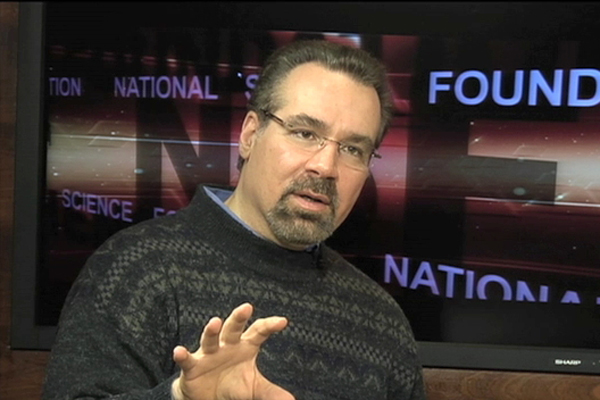Jeopardy Champ Watson's Creator Discusses Being a Scientist

When David Ferrucci was introduced to computer programming as a high school student questions flooded his mind … Where does it stop? What can I get the computer to do? "My mind immediately went to the idea of artificial intelligence ... It was just overwhelming, you know, and exciting."
A significant moment, given that Ferrucci would one day lead a team at IBM that developed Watson, the computer that famously won a three-day game of Jeopardy in February, 2011 — the popular game show's first machine/human matchup and a milestone in the field of artificial intelligence.
Ferrucci's team designed the computer system to understand and precisely answer questions posed in natural language, with all of the latter’s complexity, nuance and ambiguity. And, Watson had to be able answer Jeopardy-style questions, which contain riddles and irony not to mention constructions that are sometimes quite contorted. Watson also is able to assess its chances of being right and thus answer with varying degrees of confidence. As this video says, “Watson knows what it knows and it knows what it doesn't know.”
As big an event as it was, Watson's win only "scratched the surface" of the project's potential, Ferrucci says. The system's future holds exciting possibilities, including health care applications such as diagnostic assistance.
Below, Ferrucci answers 10 questions related to his life as a scientist.
You can follow Watson on Facebook.
Name: David Ferrucci Institution: IBM Field of Study: Artificial Intelligence
Sign up for the Live Science daily newsletter now
Get the world’s most fascinating discoveries delivered straight to your inbox.
Editor's Note: The researchers depicted in ScienceLives articles have been supported by the National Science Foundation,the federal agency charged with funding basic research and education across all fields of science and engineering. Any opinions, findings, and conclusions or recommendations expressed in this material are those of the author and do not necessarily reflect the views of the National Science Foundation. See the ScienceLives archive.










